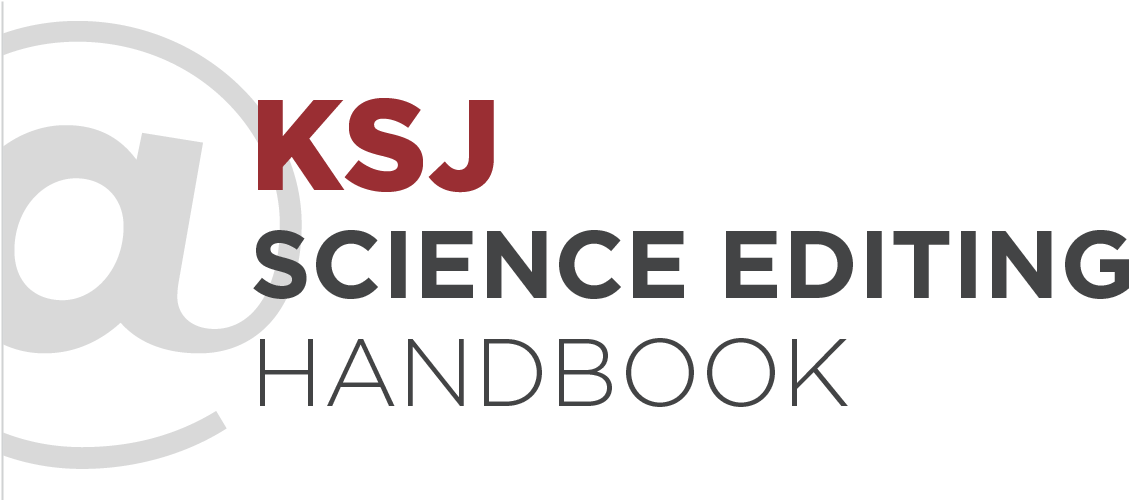Standing Apart From Science
By Tom Zeller Jr. / 6 minute read
In the spring of 2016, not long after the launch of Undark, we commissioned a story from the veteran science reporter Charles Schmidt on the collapse of the National Children’s Study, a 14-year, $1.3-billion taxpayer-funded effort, overseen by the National Institutes of Health, to understand childhood disease. The study was shuttered in 2014 under a cloud of professional ineptitude and mismanagement. Schmidt’s was the most comprehensive accounting of that failure, and to date it remains, in my estimation, one of Undark’s finest pieces of journalism. But getting there was not without its struggles, and a particular episode that unfolded between the editing staff and the reporter — shared here with Schmidt’s blessing — can, I think, help foster some useful thinking on the role of science journalists, when deference to scientific or academic sources is warranted — and when it is not — and how editors can best nurture the sort of journalism and scrutiny that readers expect and deserve.
The incident involved the word “jerk.” It was used by Lynn Goldman, dean of the Milken Institute School of Public Health at George Washington University and a longtime adviser to the National Children’s Study, to describe Steven Hirschfeld, a pediatrician who took over as acting director of the study in 2009, and whom many critics described as both inexperienced and dismissive of expert advice. The description was made in an on-the-record interview — though Schmidt did not include it in the draft of the piece he submitted. Rather, it surfaced via a transcript of the interview, which he had turned over to Undark’s deputy editor, Jane Roberts, for fact-checking.
Hirschfeld, Goldman said, “was a jerk.”
The short version of this anecdote: We thought the sentence above should be included in the story. It was made on the record, and it spoke much more candidly to the sentiments of the study’s frustrated and, in truth, angry critics — far more clearly than the watered-down, hedging, and PR-approved constructions that many NIH scientific advisers and staff members had issued. But we were already at the end of the story-production cycle, the piece was scheduled to run that evening, and Schmidt was not having it. He took offense to our second-guessing of his reporting, and he protested that while the quote was, indeed, entirely on the record, he considered Goldman a “friend” and felt she would be embarrassed, or even angered, by its inclusion. In the end — and after a frenzied evening of phone calls and recriminations, we agreed to remove the quotation marks and to soften Goldman’s sentiment, which referred to Hirschfeld’s stepping in to replace a problematic predecessor.
Hirschfeld, Goldman said, was no better — and in some ways worse.
That’s how the story ran in May 2016 — and it was a powerful story. But the episode still bothered me, and it raised a number of questions. What is the role of science journalists, and whose interests do they serve? The readers? Their sources? Both? What is the role of the science editor in communicating standards, expectations, and mission? At what point should science editors push their reporters to self-examine, and when should they back off?
In a post-mortem email to our staff, Schmidt said that he had probably overreacted to the insertion, and that as the clock ticked toward publication that evening, he felt he had no time to properly consider the issue. But he also defended — somewhat less vigorously — his decision not to use the quote in the first place.
My concern was the quote was too strong, since Goldman had been so reluctant to go on record in the first place. If she had had no problem with going on record, then fine, but I didn't want to anger her. I called her a "friend" in the voice mail, but I was emotionally ramped up at the moment. Really she's an acquaintance, someone I've met at various meetings, and we are friendly with each other. She always returns calls and is an agreeable source. In hindsight, Tom, you are right, having her call Hirschfeld a jerk would have made for a stronger transition. I'm actually on the fence with it right now.
At the risk of seeming indulgent, I include most of my lengthy response below, because I do think it highlights the role that editors can play in advising science reporters to consider their obligations and allegiances. Now, did I fumble in my handling of this incident? Probably. In hindsight, I should have simply delayed publication until we could have a more full and fruitful conversation about it. And surely some reporters will take umbrage at the idea that editors and fact-checkers might peruse notes and transcripts and second-guess their decisions on what to include. I get that.
On the other hand, this wasn’t just about sticking with a punchy quote. Many journalists — editors and reporters alike — might feel that agreeing to soften the language in deference to a powerful source was the wrong move. Here’s what I told Schmidt:
For my money, the goal of journalism is to uncover candor and truth wherever we can. Too often we have to settle for overly massaged, PR-tested and hopelessly neutered bullshit commentary from powerful people, whether in the corporate world, government, or academia. These do a disservice to readers because they aren’t real, and they are usually designed to hide — or at least obscure — what is often a much more raw and vivid truth. This is why I pushed you ... to insist that Goldman stand by her words publicly, rather than try to take the bite out of them after the fact. The truth of the matter is that she was very much inclined to bite when speaking candidly and on the record weeks before, and the anger and frustration embedded in the word “jerk” spoke volumes. It was a truly human moment, one that would have resonated with ordinary readers, ordinary taxpayers, everyone who has ever run into an asshole boss or a vindictive co-worker, and of course all the mothers and fathers with the kids who agreed to participate in this study, to open their lives and their bodies — and those of their children — for a higher cause, only to see bunglers in Washington fuck it all up. We do our journalism for them, and the word “jerk” would resonate with them because they have probably thought it themselves — and because they are human, too. It’s also worth noting that most of those ordinary readers don’t have big titles and communications staff to help them hide their humanness simply because it’s politically expedient. One of our goals as journalists ought to be to prevent the Lynn Goldmans and Francis Collinses of the world — just like the Obamas and the Trumps and the Clintons — from hiding the true view of things whenever we find the opportunity to do so.
For his part, Schmidt responded positively. “Part of the problem here was that I came up in the science trade press, where editors tend to give sources a lot more control over their input,” he told me at the time. “When you would push me to push sources, my conditioned instincts were literally to think, ‘Wow, can I do that?’ It really came as a jolt — routine to you, I’m sure, since you’re coming from the NYT, but not to me. Not to belabor, but … what you encouraged me to do in my writing for Undark — specifically holding sources to what they really said in the moment — is liberating for me as a journalist, even if it’s taken some getting used to.”
The Takeaway
On the science beat, you may be more likely than on other beats to come across reporters who, while talented and dedicated, haven’t been fully exposed to some of the fundamentals of journalism — including the importance of maintaining distance from their subjects and their sources. Many science journalists, after all, get into the discipline precisely because they love science — and why not? It is fascinating. But it is incumbent upon you as their editor to remind your reporters that scientists are human, that their actions and interactions can, as with any discipline, be influenced by money, politics, and professional rivalries. It is your team’s job to document that accurately, because at the end of the day, the reporter’s primary allegiance — and yours — is to the public, not to science.
This episode puts me in mind of something The New York Times‘s James Glanz told me. He has a Ph.D. in astrophysics from Princeton University. He also spent many years as the newspaper’s Baghdad bureau chief. He is back to writing about science now, but he says that’s no different than covering city politics or business. “If you want to make a living doing this, and if you want to break stories that are really meaningful, you have to challenge authority,” he said when I asked him for his perspective on science journalism, and how editors should encourage their reporters to approach it. “You have to be aggressive.”


